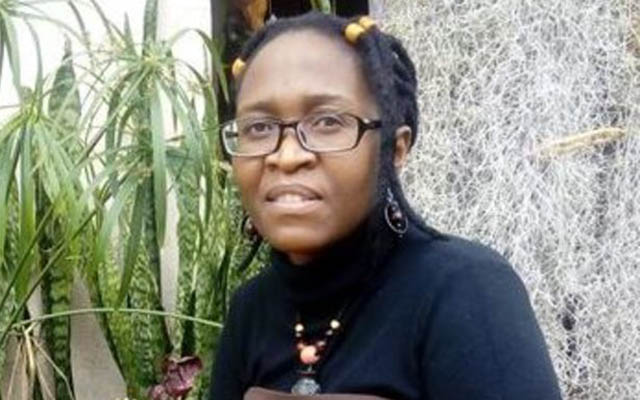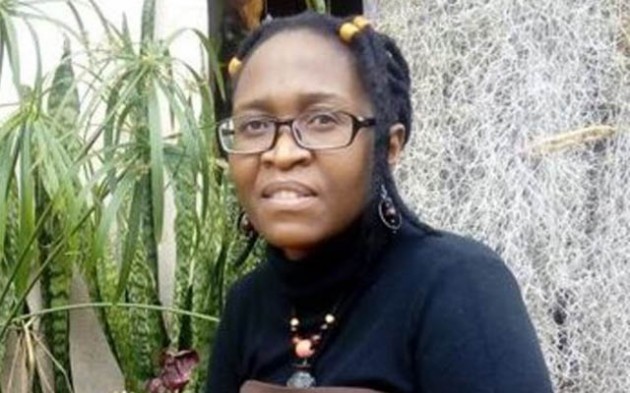An invincible writer

Beaven Tapureta Bookshelf
It began as a part-time activity some years ago but it gradually proved to be a deep-rooted passion which drew Tsitsi Nomsa Ngwenya to the real and wider literary world.
With some short fiction featured earlier in journals, the adventure that would propel her to the top started. And to her surprise, it is today threatening to overtake her main businesses.
Although she has published two books in Ndebele and English languages, Ngwenya still maintains writing is her hobby. A town planner by profession, a job which no doubt demands more time from her yet whatever little time she is left with at the end of the day, she makes sure she writes from her heart of heart.
“Izinyawo Zayizolo” (2016, Radiant Publishing House), Ngwenya’s debut novel which launched her onto the important literary ship, is sailing well. It has made it to the academic arena. The University of Zimbabwe’s Department of African Languages, for instance, has selected it as one of the primary texts for students studying Ndebele literature.
It shares the glory with the gurus of Ndebele literature like Pathisa Nyathi, Barbara Nkala and others whose Ndebele works are also being studied there. To make sure secondary school students in Matabeleland also access the book, Ngwenya donated copies of the novel to several schools during the 2017 Bulawayo Book Fair.
The title of one of her early English short stories, “The Fifty Rand Note” (2017), published in 2014 in the University of South Africa journal, would become the title of her self-published anthology of stories. Like the Ndebele novel, the anthology is making inroads in the academic arena.
Students from various African universities are picking it out as one of preferred texts in their literary researches for Masters and Doctorate degrees. The demand for “The Fifty Rand Note” from university libraries and bookstores all over the world, among other reasons, has compelled her to publish its second edition. While her themes or writing style may have attracted readers, Ngwenya told Bookshelf that integrity is what drives her.
“Integrity, I repeat, integrity. When I failed to find people with integrity I started working alone and as long as I work alone, I progress. I suffered in business, my projects crashed because I entrusted them to corruptible people and so now I operate alone,” said Ngwenya.
In her business and literary life, Ngwenya has stood by this virtue of integrity. In 2005, she started a real estate company with someone but because of the partner’s dishonesty, they parted ways. Alone, she started her companies which became successful and only shut down when the Zimbabwean economy began to decline.
The release of “Izinyawo Zayizolo” last year introduced her to some of the glitches in the traditional publishing system. She decided she would self-publish her second book “The Fifty Rand Note”, a collection of short stories. Today, she is happy working from home as a consultant and writer.
Ngwenya has not taken her ‘individualism’ to the coldest extreme. She travels. She frequents writing events. She sympathizes with the disadvantaged as shown when some time ago she paid school fees for seven high school students some of whom have since graduated.
As the new era in Zimbabwe is largely concerned with economic restoration, Ngwenya views “the family” as the foundation that ensures a stable society which in turn helps build a good economy, a happy nation.
Ngwenya would not be happy to see a Zimbabwe with conceited men like the character Njabulo in her short story “Uncle Njabulo” who, after being away in South Africa for many years, returns home with only a bicycle and his empty pride.
And soon as he arrives, he pushes his wife around notwithstanding how hard she worked to take care of the home and children while he was away flirting. In the new Zimbabwe, Ngwenya said she would also not applaud women who behave like the character Vimbiso in the short story “The Prisoner”.The story shows Vimbiso is an absolute ruler in her home. With her ‘insecurities’ she kills the zeal of being husband and ‘head of family’ in Mandla.
“As a society we tend to stereotype, ‘men are abusers’, but you find women who are abusers also like Vimbiso who abuses her husband Mandla, taking advantage of his good character. Vimbiso treats Mandla as her financial, physical and emotional slave. Therefore stereotypes created by culture or religion must be addressed so that we build a responsible society,” said Ngwenya.
Asked about her view on writing, she said, “Writing is something that does not start on a publication of a story, as I grew up I read a lot, observed and questioned things. Writing is like a volcano, stories keep building themselves from inside the observer, the writer; like a volcano, the day it erupts is the day people would say it happened on such and such a day but not quite so.”
Next year, she will publish her third book “Yesterday Footprints”.
She also has two unpublished Ndebele novels.










Comments